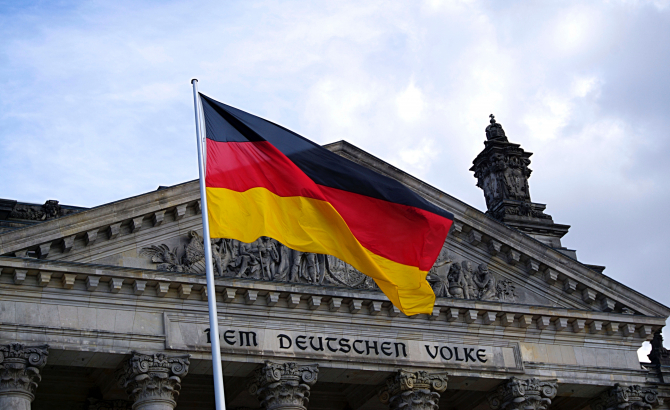Because in Germany we see black on the economy

What do the estimates of growth of the economy of Germany presented by the Ifo Institute say. Pierluigi Mennitti's article from Berlin
The international situation shows no signs of calming and weighs on the economic performance of all countries. Thus the growth estimates for Germany presented this morning by the Ifo Institute in Munich certify the slowdown due to the consequences of the Russian-Ukrainian war. The conflict, with its load of uncertainties linked above all to energy issues, has dulled the hopes of recovery after the darkest years of the pandemic, a factor which, moreover, is worrying again, albeit to a lesser extent.
CUT FORECAST ECONOMIC GROWTH FROM 3.1 TO 2.5%
"The Russian attack on Ukraine and the sharp rise in energy prices are holding back the economic recovery in Germany", thus certifies the Munich economic institute which has thus cut its economic growth forecasts for this year to 2, 5%, from 3.1% assumed in March. For next year, the Ifo expects an acceleration to 3.7%.
INFLATION FOR 2022 AT 6.8%
Inflation, another sore point of this phase, should rise to 6.8% and fall to 3.3% only next year. "At the moment, economic output is still 1% lower than the pre-Covid level of 2019," said Timo Wollmershäuser, head of forecasts of the IFO, "however, we expect a gradual decline in commodity prices and a shortage of materials in the second half of the year ".
EXPENDITURE ON SERVICES CONTAINS THE DECREASE IN CONSUMPTION
The consequent drop in consumption was less severe than expected. Wollmershäuser explained why: "The loss of household purchasing power associated with high prices was reflected in a decline in the consumption of goods at the beginning of the year, however thanks to a significant increase in spending on services as a whole, they did not decrease in the first quarter, but remained stable ”.
PANDEMIC, BETWEEN RELIEF AND FEARS
For Bavarian economists, the consumption figure reflects "the attenuation of the pandemic wave and the normalization of household spending behavior". On this front, Munich remains optimistic for the next few months: “This normalization is likely to continue throughout the year, thus contributing significantly to the growth of the German economy”.
But it would not be the first time that the country's research institutes have proved too optimistic about overcoming the pandemic emergency. This is demonstrated by the reflections of the measures in China, where the government continues to maintain a strict line in the face of the sudden resurgence of the virus, aggravating the problems related to bottlenecks in supply chains. On the domestic level (German but also European) today there is a new alarm from the Minister of Health of Berlin, Karl Lauterbach, according to which "the summer wave of omicron variants has unfortunately become a reality".
Health experts have been detecting a rapid resumption of infections for days (as a result of the greater transmissibility of the virus and the end of almost all safety measures) and are preparing for a different summer than the previous two, when the contagion curves practically cleared to start again in the autumn. It is unlikely that this and new hypothetical waves in autumn and winter could re-propose lockdowns capable of having a heavy impact on the economy, but the experience of the past two and a half years should suggest caution in overly optimistic forecasts.
UNEMPLOYMENT DOWN, THE PROBLEM IS THE LACK OF LABOR
As for some time now, good news has come on the side of work. For 2022, the Ifo Institute expects the unemployment rate to drop to 2.3 million people from the current 2.6 million, with a drop in the rate from 5.7% to 5%. For German companies, especially in the service sectors, the big problem of the moment is, if anything, that of a shortage of manpower. It affects everyone, from airlines to the hotel and restaurant sector, and can affect tourism profits over the next three summer months. Over the next year, IFO economists estimate that the number of unemployed will remain virtually unchanged. The hole in the state coffers is expected to halve this year from 131 to 65 billion euros and reach only 12 billion euros next year. The current account surplus (exports, imports, services and transfers), "so criticized internationally", the Bavarian institute literally notes, will drop this year to 181 billion euros, from 265 billion in 2021. For the year next, the Ifo again expects a surplus of 241 billion euros.
This is a machine translation from Italian language of a post published on Start Magazine at the URL https://www.startmag.it/economia/germania-economia-stime-crescita-ifo/ on Wed, 15 Jun 2022 15:45:08 +0000.
